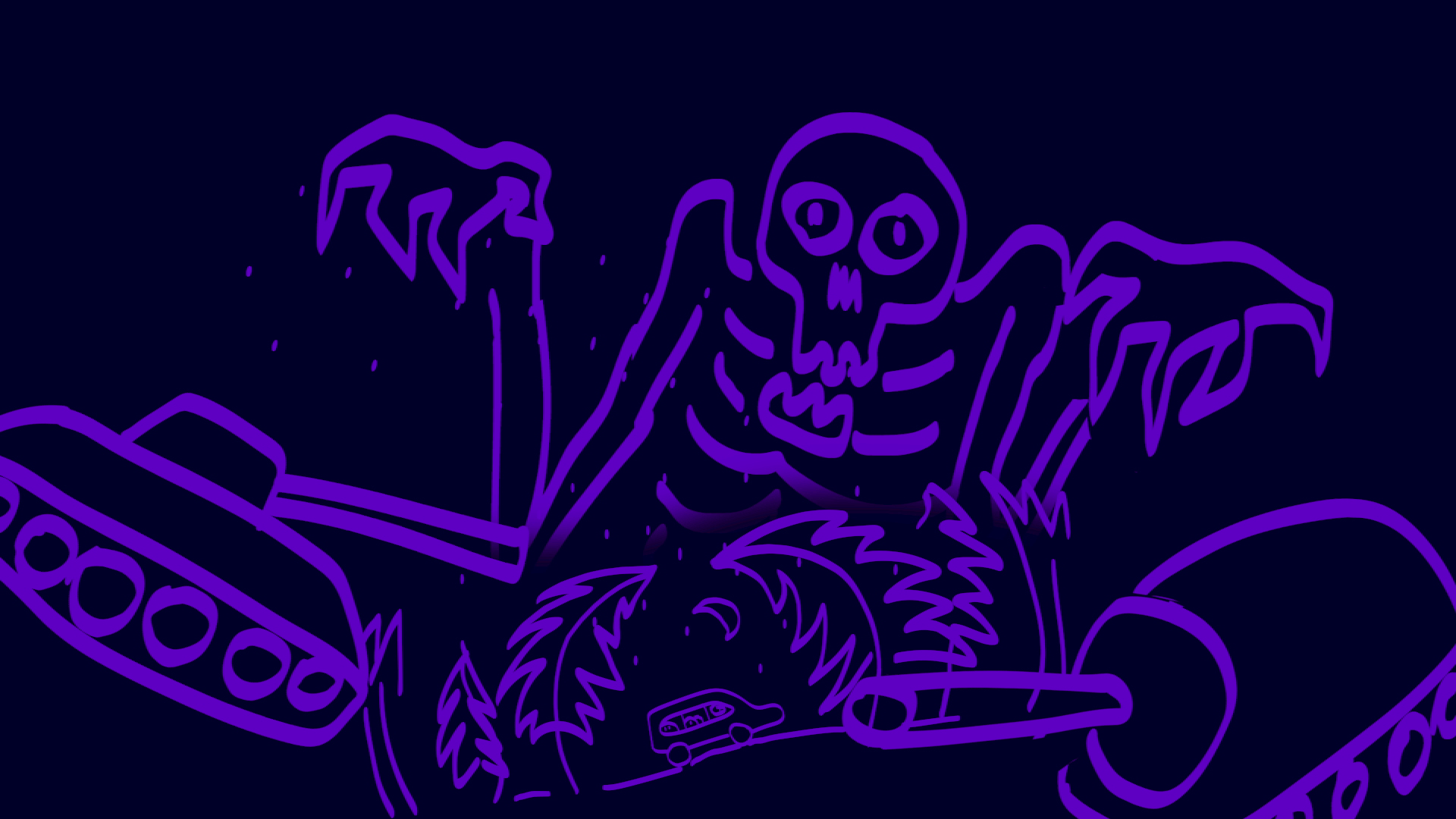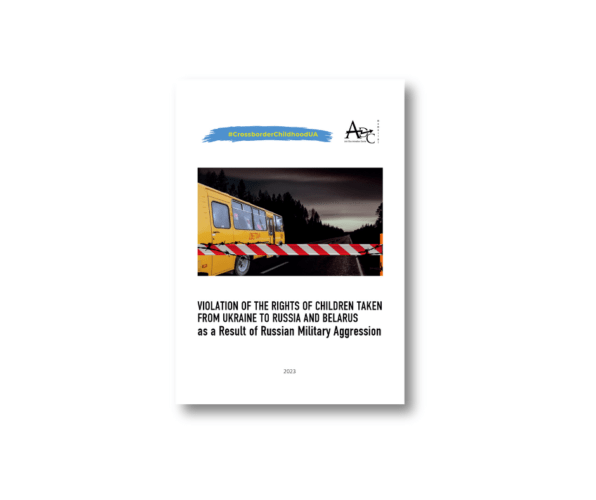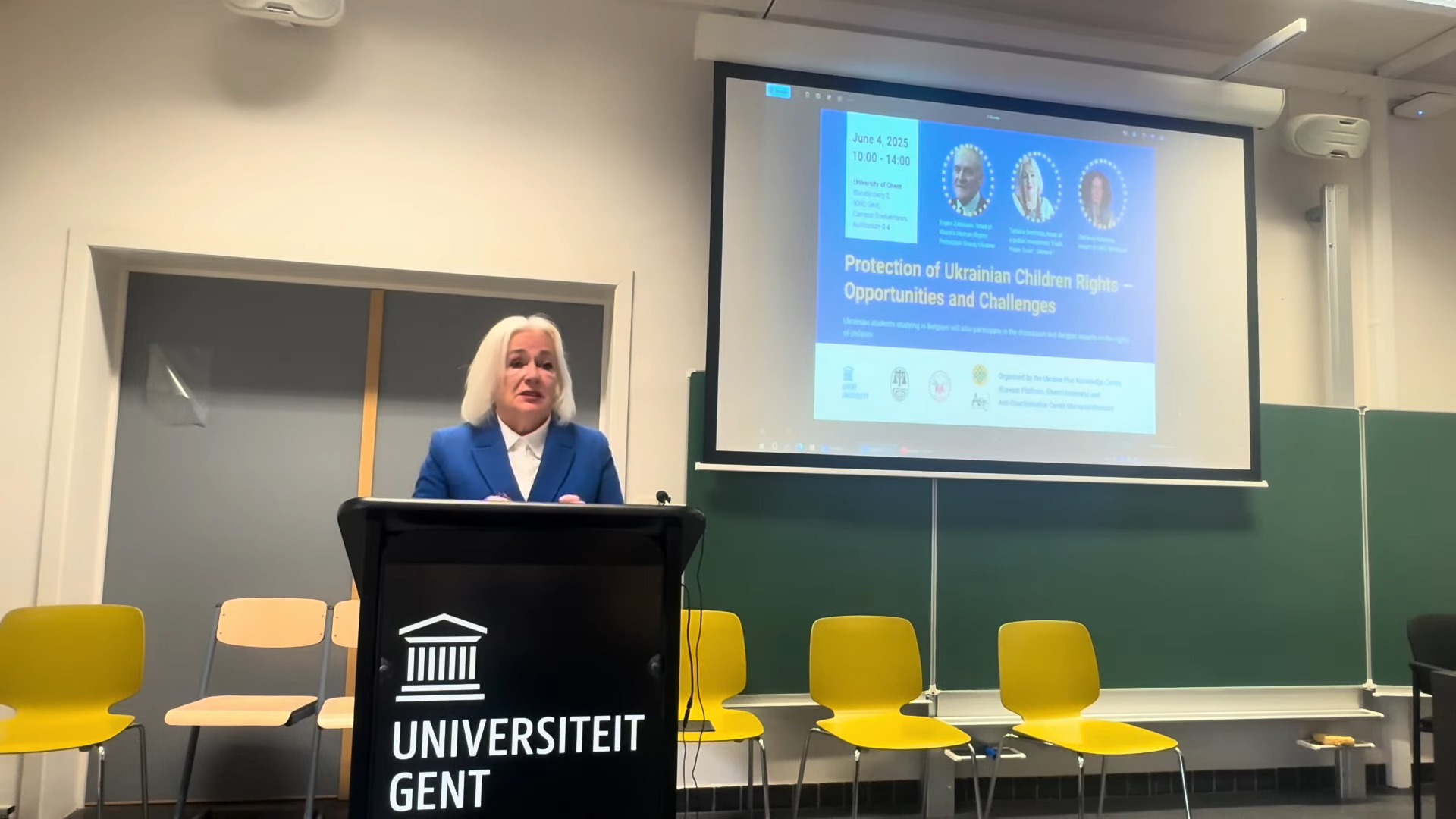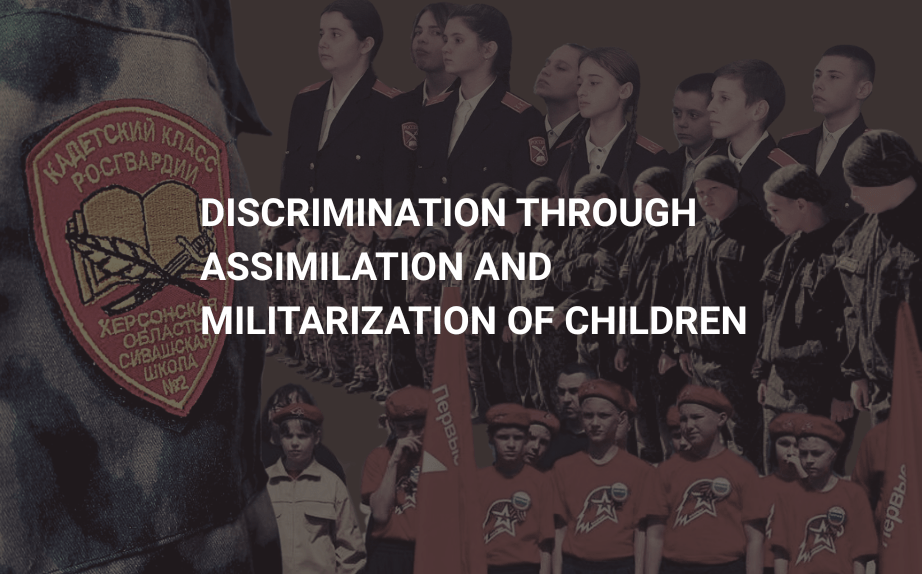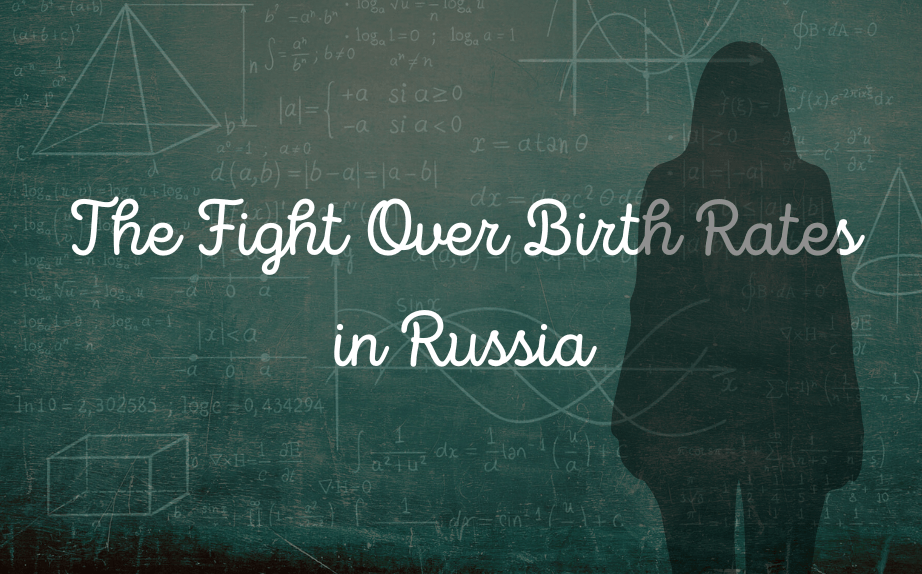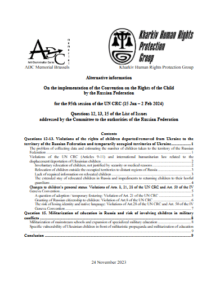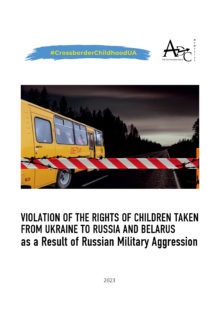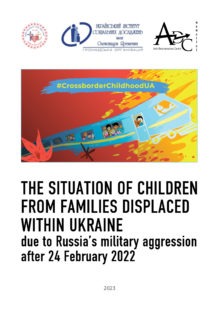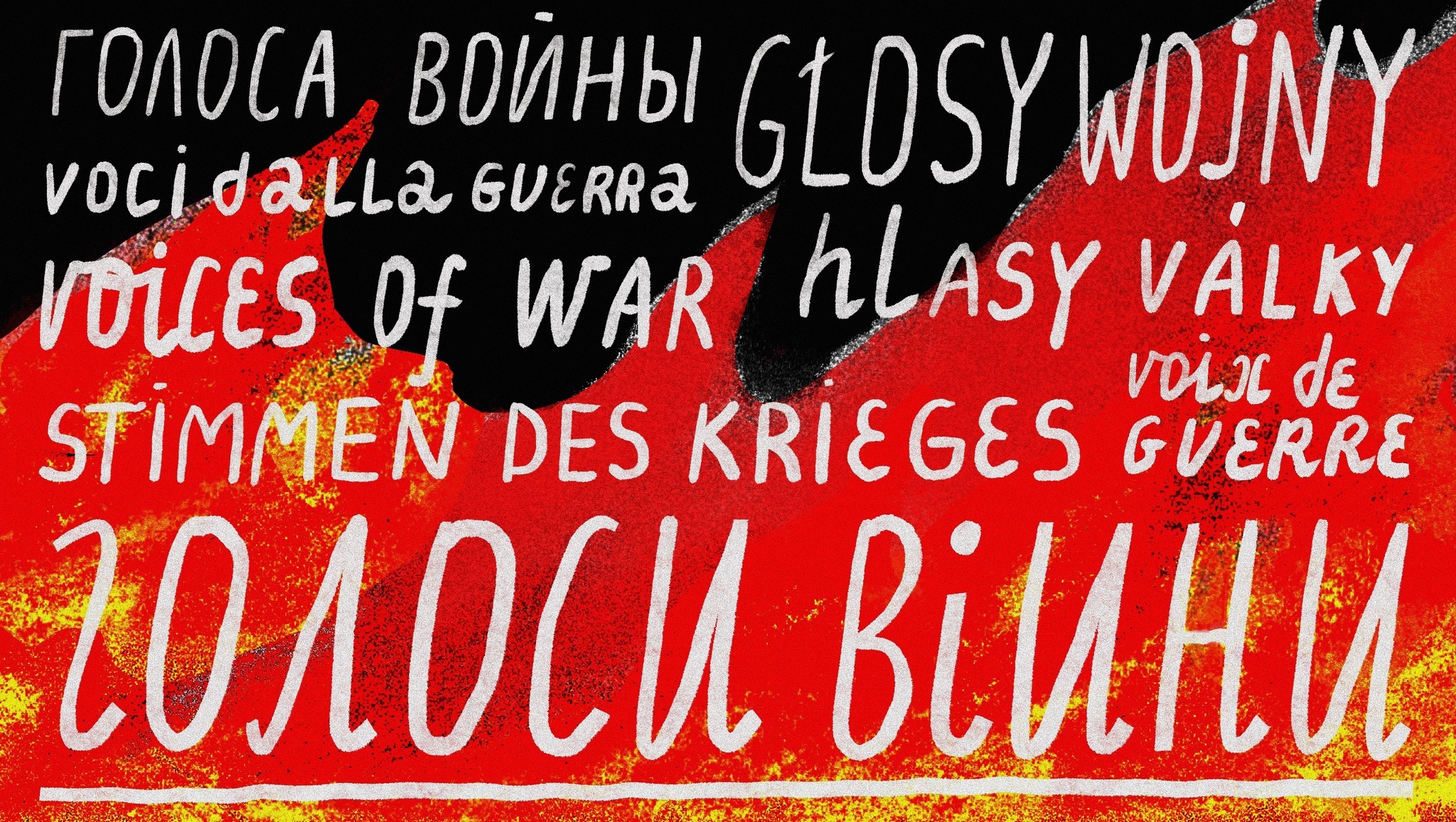On November 20, World Children’s Day is celebrated – as anniversary of the adoption of the Declaration of the Rights of the Child (1959) and the Convention on the Rights of the Child (1989). The UN documents and mechanisms are now often criticized for inefficiency, bureaucracy and being out-date, but since Russia is rapidly leaving international platforms and previously ratified agreements, the UN still remains one of the few “places for discussion”. In January 2024, the situation in Russia will be reviewed by the UN Committee on the Rights of the Child. Among the questions formulated by independent experts, there are “peaceful” ones that could be asked quite routinely to any country at any time – but the others are specifically related to Russia’s war against Ukraine.
The Committee expectedly calls on Russia to answer about the children deported from Ukraine: about their number; about granting Russian citizenship to them, in contradiction with international humanitarian law; about guarantees for their return to Ukraine and the preservation of their identity, citizenship, family ties; about the fate of those who were adopted. Russia, as it is well known, denies its crimes against Ukrainian children, considering deportation as “evacuation” from dangerous areas. Meanwhile, the crimes against childhood include not only the forced displacement of children, the severance of their ties with Ukraine, the incorporation them to the Russian citizenship and all mentioned in Articles 49-50 of the IV Geneva Convention, but also militaristic propaganda targeting Ukrainian children and even using them as an instrument (like during the patriotic show in Luzhniki in the anniversary of the invasion, or in Maria Lvova-Belova’s public stories about raising an adopted son). Now we know a lot about forcible involving Ukrainian children in Russia and in the occupied territories of Ukraine into the programs of “military-patriotic education” – in schools, summer camps, temporary facilities for refugees. In the photos published by the organizers of such events – all kinds of “patriotic centers” – you can see children with military weapons who often look younger than even 12 years old.
This abnormal situation raised questions by the Committee to the Russian authorities in the context of the Optional protocol to the Convention on the Rights of the Child on the prevention of the involvement of children in armed conflicts. It used to seem that the Protocol concerns rather child soldiers in Africa or shahid children in Afghanistan, but this topic has become close to the modern Russian reality.
However, the examples of direct and sanctioned by the authorities participation of children in the war–are limited so far with the videos published by Kadyrov, where his minor sons (including the youngest one, now famous and awarded many medals for beating a prisoner) are sitting in a trench and shooting, as it was claimed, at Ukrainians. Already back in 2011, the UN Committee on Socio-Economic and Cultural Rights drew attention to children from Chechnya and the North Caucasus region and their risk to be involved in military units, and the Committee on the Rights of the Child in 2014 called for investigating cases of involvement of children in military operations in Chechnya and responsibility for the perpetrators.
The militarization of childhood in Russia did not begin today or even yesterday; human rights defenders have sounded the alarm about the invasion of militarism into the education system – long before the restoration of military training in schools, the “Yunarmia”, the “Movement of the First” and other military-patriotic initiatives of recent times. During the last consideration of the situation in Russia by the Committee on the Rights of the Child– almost 10 years ago, – in an alternative report, we drew attention to the massive creation of Cossack and cadet classes in Russian schools, with hand-to-hand combat instead of physical training lessons, with fire training classes, in-depth study of Orthodoxy, promotion of “traditional values”, mandatory uniform. That time, in January 2014, the Committee on the Rights of the Child issued clear recommendations: to prohibit the combat training of children and the use of firearms in classes both in ordinary schools and in military schools; do not apply the norms of military discipline and military penalties to cadet children; protect them from violence and hazing; do not enrol children in military schools and classes without their informed and explicit consent.
Having started as one of the numerous pedagogical experiments of the 1990s, cadet education was very quickly appropriated by the state system and continues to grow like a hydra. These are not only hundreds of closed military institutions – Suvorov schools, cadet schools and corps (including private ones), specialized cadet schools (sports, engineering, IT), but also thousands of specialized cadet and Cossack classes in ordinary schools, patronized by law enforcement agencies. If ten years ago the proposal to “delegate a Cossack to every school” (the idea of the governor of Krasnodar Krai) looked like a bad joke, now this “Cossack” is actually ruling there. Military educational institutions and classes are subordinated to the Ministry of Defense, the Ministry of Internal Affairs, the Ministry of Emergency Situations, the FSB, the Investigation Committee, the Rosgvardia or, formally belonging to the Ministry of Education and regional authorities, have curators from the law enforcement agencies. Special laws “On cadet education” were adopted in the regions, the Investigation Committee developed a profound concept of cadet education – its list includes dozens of schools across the country with specialized classes. Children from the occupied territories are actively enrolled there, first of all children from large and vulnerable families. Cadet corps have opened in the Crimea; children from Donetsk and Luhansk regions are enrolled in cadet corps and classes patronized by the Investigation Committee in Moscow, St. Petersburg, Volgograd without exams.
The military education system also has a gender dimension. While cadet classes are mixed, with boys and girls studying together, there are also special super elite institutions for girls only: in particular, the boarding house under the Investigative Committee in St. Petersburg (its building in the very city center was taken away from the Polish gymnasium), and two boarding houses under the Ministry of Defence, in Moscow and St. Petersburg. The latter was built as a special project, on Bychy Island; the “lucky ticket takers” are girls from military families, from single-parent and large families, mainly from regions; the advantage, as the curator of the institution Valentina Matvienko emphasized this year, is given to the daughters of “heroes of the SVO (special military operation, meaning the war in Ukraine)”. Matvienko used to talk about “the best traditions of classical female education” – the boarding houses pretend to be like the Smolny Institute (a boarding school for girls from noble classes in the Tsarist times), but in a new military format – the girls follow mandatory dress and hair code (they have 6 different types of the uniform); to move within the building, they march like soldiers; their communication with families is limited.
A huge demand for militaristic education in Russian society is explained not only by ideological propaganda and parental commitment to “order and discipline” – but also by practical bonuses. In the boarding schools, children get full state support (food, uniformed clothes, accommodation), the quality of education in cadet classes is often higher (often the so-called “lyceum” classes with the best teachers are transformed into cadet and “police” classes), children are busy the whole day. The system of military schools organizes its own internal competitions, Olympiads, contests (not only in a military field or patriotic events, but also quite peaceful and intellectual competitions). For many families, this means prestige and serves as a social elevator. The alumni enjoy guaranteed enrolment and additional points for admission to the university, guarantees of future employment in the state service with all its benefits and social guarantees. Probably, this is what parents have in mind enrolling a child to specialized classes under the Federal Penitentiary Service (such ones also exist…)?
The state is raising a loyal caste of the “new nobility”, often hereditary, for all law enforcement agencies, replacing the family with a “cadet brotherhood”, selecting those who are ready to live in boarding institutions, march, wear uniforms and dress hair in a strictly approved way, joyfully and skilfully use arms.
All this is a violation of the Convention and a State crime against children. From the website of “Yunarmia”, boys born in 2000-2002 look at us from photos – these are former winners of military sports competitions, drill inspections, shooting competitions, participants of parades and honor guards, the best conscripts and then contract soldiers. When they died in Ukraine, the Convention on the Rights of the Child no longer applied to them; they were adults and paid for their choice. But they were prepared to participate in a criminal war for a long time, still in childhood they were poisoned with military propaganda which determined their life and death path.
Olga Abramenko, expert of Anti-Discrimination Centre Memorial
First published on Radio Liberty’s blog









 Feedback
Feedback 